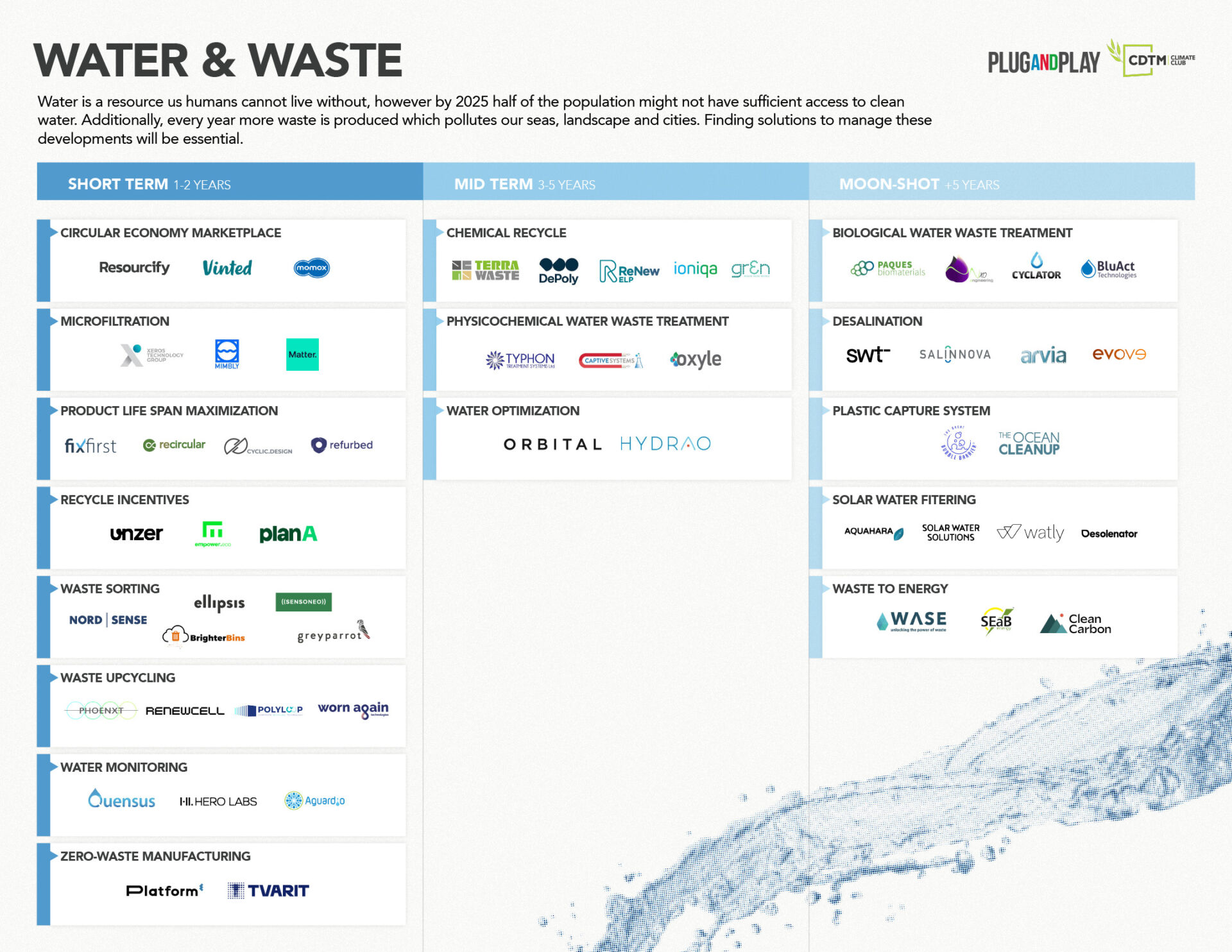
Water is a resource humans cannot live without. However, by 2025, half of the population might not have sufficient access to clean water. Additionally, more waste is produced every year which pollutes our seas, landscapes and cities. Finding solutions to manage these issues will be essential.
Our investment hypothesis is driven by:
1 Waste management & sorting
- Waste management is a $2.1 trillion industry with inefficiencies that have an environmental and financial impact
- Out of 2 billion tons of solid waste, only 13% is reprocessed and less than 0.1% is audited
- To increase this percentage and automate the process, start-ups are leveraging machine vision and deep learning models to efficiently sort, audit and manage waste
2 Chemical recycling
- Globally, around 250 million metric tons of plastic waste are generated annually, of which only 20% is recycled
- Chemical recycling processes can increase overall recycling rates and significantly reduce energy rates
- Significant developments are depolymerisation (or chemolysis), where plastic waste is broken down into monomers to be fed back into plastic production, and conversion (or hydrothermal), where mixed plastic waste is broken down into oil- or gas-like feedstock that is then used to produce chemicals including plastics
3 Desalination
- As 97.5% of available water is salt water, effective desalination will be essential to deal with our water crisis. Today, the process of removing salts and other materials from salt water to produce freshwater requires a high consumption of energy, making it expensive and environmentally harmful
- New technologies are being tested including electro-chemical-, forward osmosis-, and membrane distillation-desalination, which all have scale-up potential because they reduce energy and operational costs



